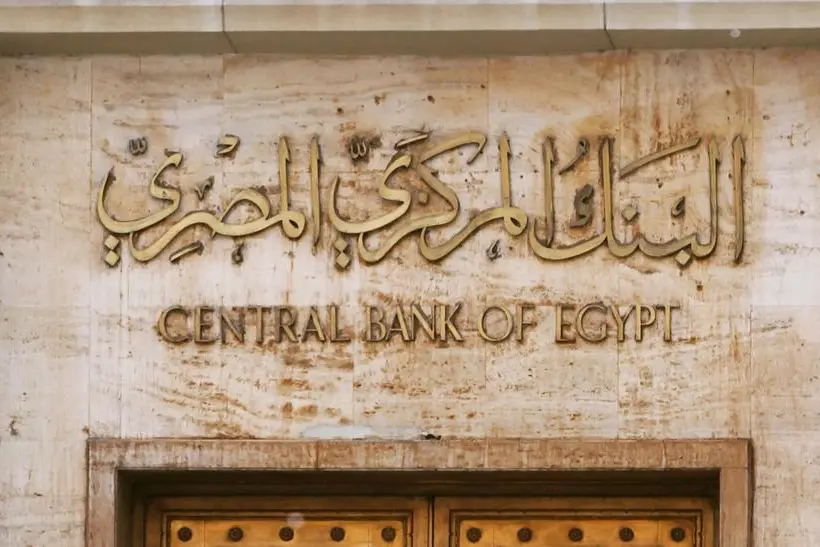PHOTO
Factories in default can now turn to the banks to resume their operations, reports Mona El-Fiqi
The Central Bank of Egypt (CBE) gave the green light last week to the banks to extend credit to factories that have defaulted on their debts and closed in a bid to help them resume operations.
During the past few years a number of industrial factories and companies have suffered from a decrease in production as a result of the economic slowdown since 2011.
Many companies have defaulted on their financial obligations to the banks and accordingly have been included on the banking sector's black lists, meaning that it is impossible for them to acquire new loans.
Last week, the CBE gave instructions to the banks to compile a survey of each bank's defaulters in the industrial sector, shedding light on the reasons for their closure. The survey would include the factory's size, market share, and its potential in case new credit was supplied.
According to the CBE initiative, the banks would then be free to provide credit to defaulters according to the survey results.
The move is believed to be intended to benefit both the banks and the insolvent factories. Providing new lines of credit would be the kiss of life for insolvent factories, allowing them to start operating again and thus repay their initial debts.
The number of factories that have either closed or are operating at reduced capacities hovers around 7,000, representing 20 per cent of Egypt's total capacity according to Mohamed Al-Bahi, a board member of the Federation of Egyptian Industries.
The factories had shut or reduced their production capacities due to different reasons. Textile factories have been unable to compete in the local market due to the increase of smuggling, particularly after the 2011 Revolution, for example, with 40 per cent of textile factories having shut since 2011.
Successive governments are to be blamed for having been unable to crack down on smuggling or even able to set up a system of fair competition among local producers. A lack of raw materials, lack of skilled workers, security reasons, insolvency and the low prices of imports are also reasons for the closure of the factories.
Businessmen expected that the CBE decision would help to boost the industrial sector. Moharam Hilal, chairman of the Tenth of Ramadan Investors Association, said that the initiative would help factories which have had long-term financing problems to reopen.
"But the initiative won't be able to help factories which have administrative or marketing problems. However, even if 40 or 50 factories are able to resume work, it will be better than nothing," he said.
Hilal explained that the closed factories should be looked at according to the reasons for their closure in order to help them. The reopening of the factories should be prioritised by the government over setting up new ones, he said.
Providing credit would give a much-needed push to an existing but defaulted factory with its production lines, skilled workers and market share intact. A new factory needs two to three years to be established.
The industrial sector as a whole has been facing problems since the 2011 Revolution, he said, noting that "we lost our credibility in the international markets. Importers and exporters have been reluctant to give us payment facilities, which was not the case before the Revolution."
However, as the CBE initiative is non-obligatory, Al-Bahi is sceptical about its effectiveness as the banks usually prefer to provide credit to profit-making companies in order to guarantee the repayment of loans.
"The banks do not like giving credit to small and medium factories because of the risk and regardless of their being the engine of economic development. But in the world as a whole, small and medium enterprises are supported to help boost local industry and provide products at suitable prices for middle-class citizens" Al-Bahi explained.
The initiative was a good one, but how it would be applied was also important, Al-Bahi said, who blamed the government for neglecting the problem for years. "The government's negligence has resulted in economic catastrophe that has led to decreased production and layoffs," he added.
The government should change its monetary policies to facilitate credit for small and medium-sized industries, as was the case in the rest of the world, Al-Bahi said.
The CBE initiative is not the first of its kind as the Ministry of Trade and Industry allocated a LE500 million package last year to fund defaulted industrial borrowers as part of a LE22.3 billion stimulus plan to boost the economy.
Minister of Trade and Industry Mounir Fakhri Abdel-Nour decided that these funds should be used to finance the working capital of companies unable to find financial resources in the marketplace.
However, Al-Bahi said that hundreds of closed factories had presented requests to the ministry, but nothing was done. The minister had decided that the funds should be given through the banks to ensure that they would be assigned on a sound economic basis.
"Many factories were not able to get even a single pound because they were included on the banks' black lists, which prevents them from having credit for five years," Al-Bahi said.
A further attempt had been made by the state-run Industrial Modernisation Centre (IMC), which has already helped 110 factories. Efforts have also been made by investors' organisations that have successfully helped a small number of factories to negotiate an end to ongoing disputes with the banks, allowing them to resume operations.
Al-Bahi suggested that a fund should be established to help closed factories that lack the necessary financial resources to reopen. This fund would take stakes in defaulted factories for two or three years until they are able to regain their places in the market, he added.
© Al Ahram Weekly 2015





















